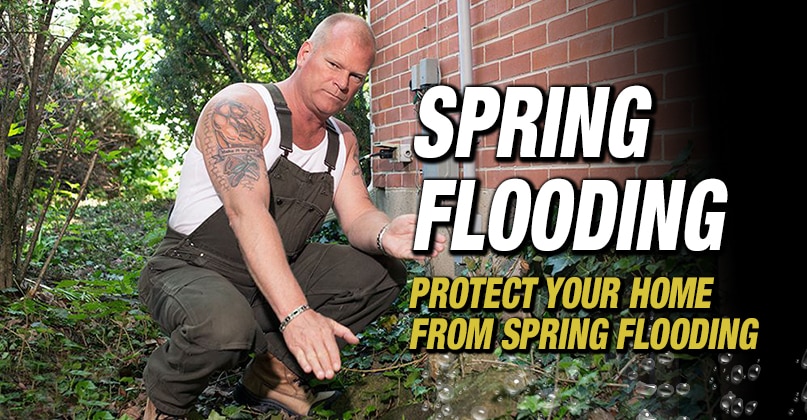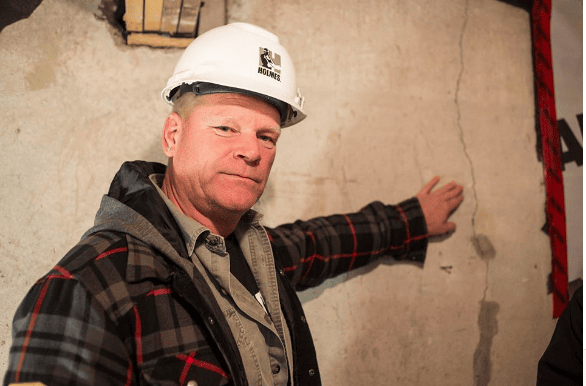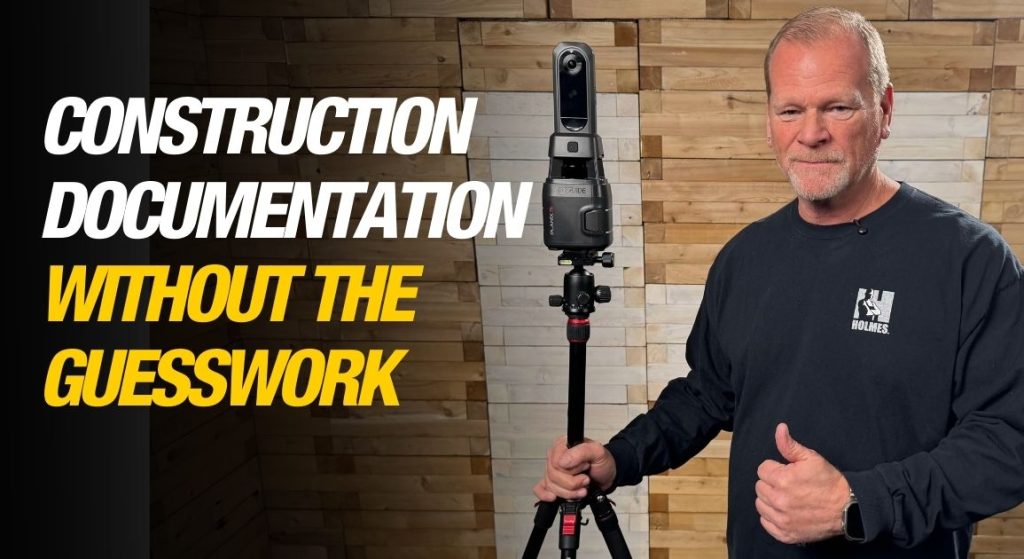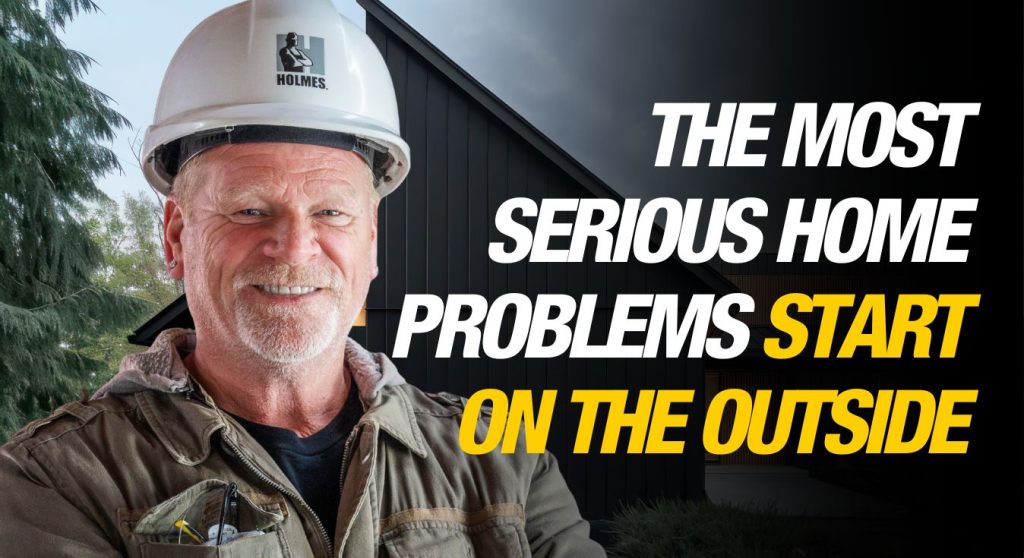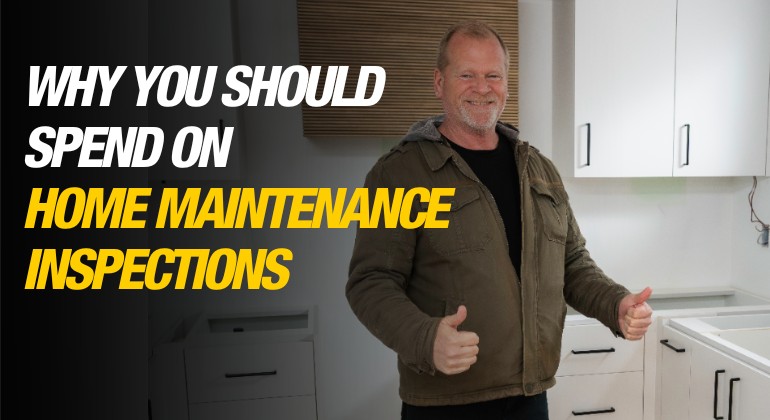I love exploring new technology—especially when it genuinely improves how we work in construction—and I recently came across one that truly impressed me, iGUIDE by Planitar Inc. In my...
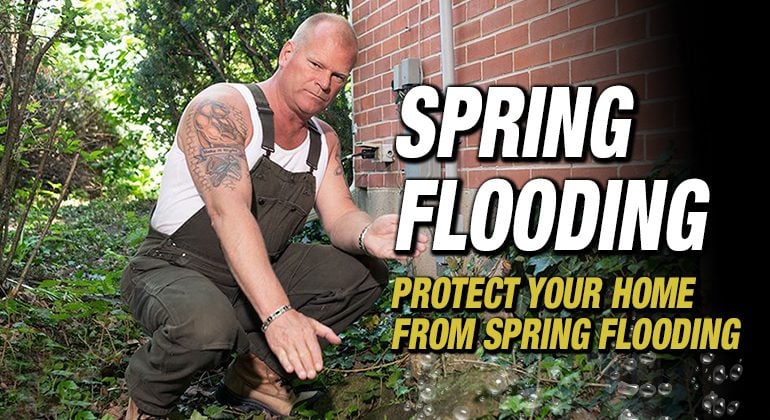
Protect Your Home From Spring Flooding
By Mike Holmes
Mike’s Advice / Home Safety & Maintenance
Thursday, March 16th, 2023 @ 11:57am
Tips on Protecting Your Home Against A Flood
It’s flooding season folks – don’t get caught unaware with a spring flood from the melting snow and rain. A strong roof, and a proper drainage strategy are the best ways to prevent water from entering your home.
The area of your home most susceptible to flood damage is your basement. Is your home equipped to prevent spring flooding? Here are the items that should be on your checklist.
#1 Is Your Roof In Good Shape?
Look for any instances of broken or missing shingles.

If you’re not sure what exactly to look for, a roofing pro can also help assess the state of your roof and make suggestions in case a repair is needed.
#2 Do You Have Cracks In Your Foundation?
Walk around the exterior of your home and look for cracks in your foundation. Mark any cracks that you come across with tape and check them every three months. If the crack doesn’t grow, it can usually be filled with an epoxy injection (Sikadur® Crack Fix is the best one in my opinion).
Some hairline cracks are normal but if you find a foundation crack that is large enough to fit a coin in, it’s time to call a professional.
RELATED
How Serious Is a Crack In Your Foundation?
#3 Are Your Gutters Clean?
When water flows down your roof the eavestrough should be moving that excess water far enough away to prevent flooding.
Keeping the gutters clean is a small job, but an important one. They need to be free of blockages and debris, otherwise, instead of passing through and out the downspout, it could spill over, directly hitting your foundation.
Installing mesh gutter guards will keep gunk from clogging up the pipes and allow water to seamlessly pass through, and you won’t have to keep climbing the ladder to clear them out.
RELATED
#4 Are Your Gutters Fastened Tightly To The House?
Make sure the gutters are still fastened tightly to the home. If they’ve started to pull away, they won’t properly catch water flowing down the roof.
#5 Do You Have Enough Gutters?
Your home may have more than one roofline – and each one needs to be lined with a gutter.
#6 Are Your Downspouts Taking Rain Water Away?

You want your downspout to expel water at least one metre away from the foundation.
You should be able to get an extension from just about any hardware store, so if you think the gutters are draining too close to the home, it’s an easy fix.
Has a recent flood damaged your electrical system? Hire a Licensed Electrical Contractor to check your home’s electrical system and make any necessary repairs.
#7 Do you see big puddles accumulate on your lawn?
This could be an indication of bad grading. You want your yard to slope down away from the house, to allow water to run off away from the foundation and not toward it.
If you did some landscaping last year, only to find big puddles this year, it may mean the property is improperly graded.

After the spring thaw, call in a landscaper to help regrade your yard.
#8 Keep the Sump Pump Pumping
A sump pump is a mechanized device to remove excessive below grade water away from your foundation. It pumps that water away from your home, to somewhere it can’t do damage.
If your sump pump is depositing the water too close to your home, it may find it’s way back to your foundation and cause problems. This is a good time of year to have your pump professionally inspected to make sure it’s in good shape.
Unfortunately they don’t last forever. It depends on frequency of use, but pumps typically last 10 years or so.
RELATED
#9 Look for pooling water around the foundation
If water is flowing towards your house or pooling near the foundation, investigate the cause. Have you planted trees or bushes right up against the foundation? Do you have a walkway that is angled the wrong way?
Unfortunately, this is not an easy fix and will require you to bring in a professional.
RELATED:
How To Repair A Leaky Foundation
#10 Do you have a backup generator in case of a power outage?
Invest in a standby generator. In the event of a power interruption, it automatically kicks in and starts to provide power directly to your home’s electrical system through a transfer switch. Without power, your sump pump may stop working, and you could find your basement flooded.
When the power goes down, you don’t want to have to worry about your sump pump losing power, too. Hopefully, your sump pump includes its own battery backup, but to be safe, I’d want to guarantee it’s working with the added security a generator provides.
Even smaller generator units provide a little backup power to run your essentials. It is a good idea for any homeowner.
RELATED
What To Do If You Experience Flooding In Your Home?
Unfortunately, sometimes you can take all the precaution in the world and just get unlucky.
TAKE YOUR TIME
It’s natural to want to do things quickly – but recovering from a flood is a slow, methodical process.
CALL YOUR INSURANCE COMPANY
Call your flood insurance company and file a claim. This is the one step you should do quickly. Next you’ll need to hire your flood recovery team.

You’ll need someone who can pump the excess water out, and remove all the debris.
CONTACT YOUR CONTRACTOR
You’ll need a contractor – and not all of them have experience dealing with flooding, so make sure you hire one that does. They’ll need to rip up damaged flooring, and open up the wall cavity to let it all dry out.
If the water got high enough to reach any electrical outlets, you’ll also need to hire an electrical contractor to check your system out (though I would anyway, just to be safe).
Same with an HVAC specialist. You’ll definitely want to bring one if flood waters got into any ducts, but for peace of mind, they are worth calling either way.
RELATED
